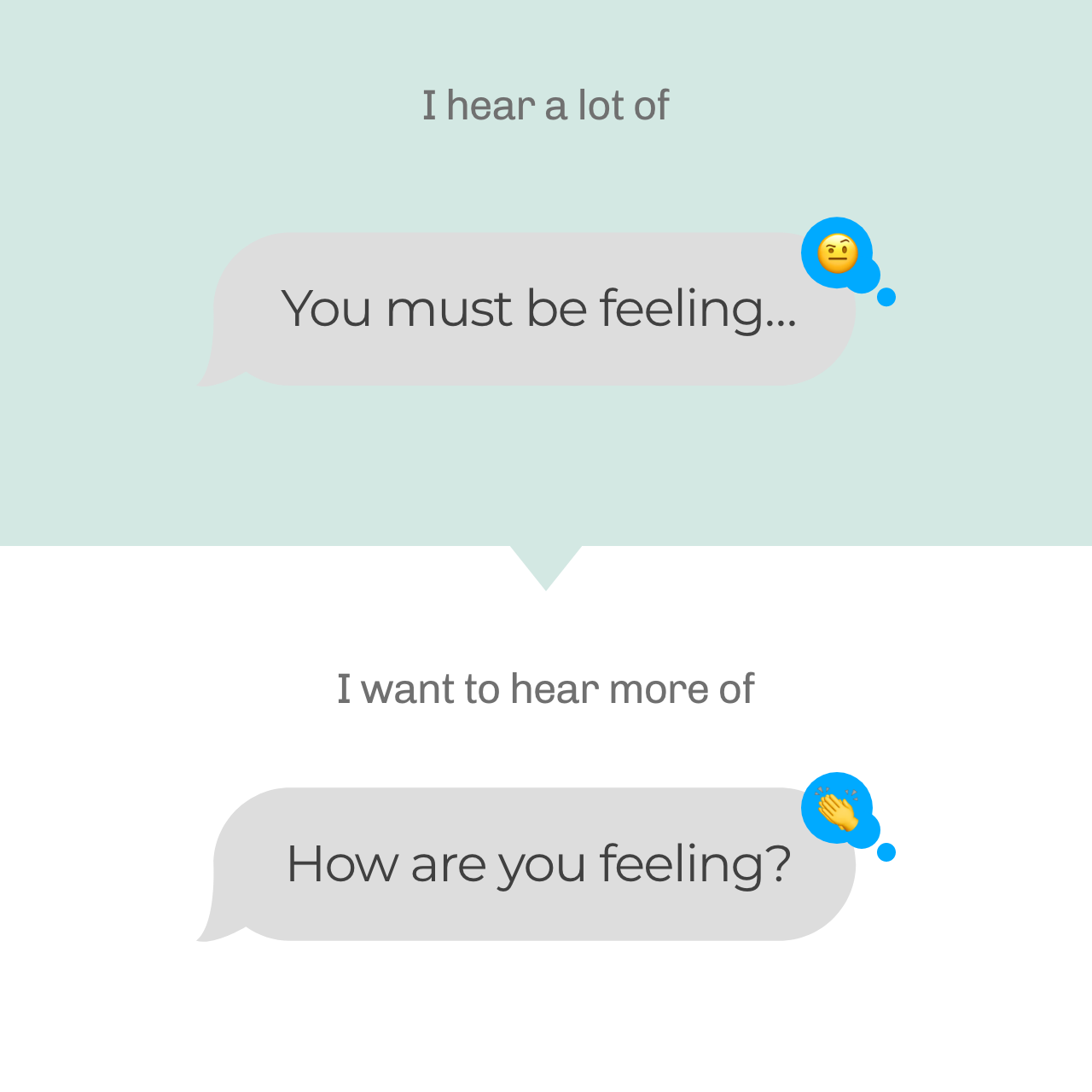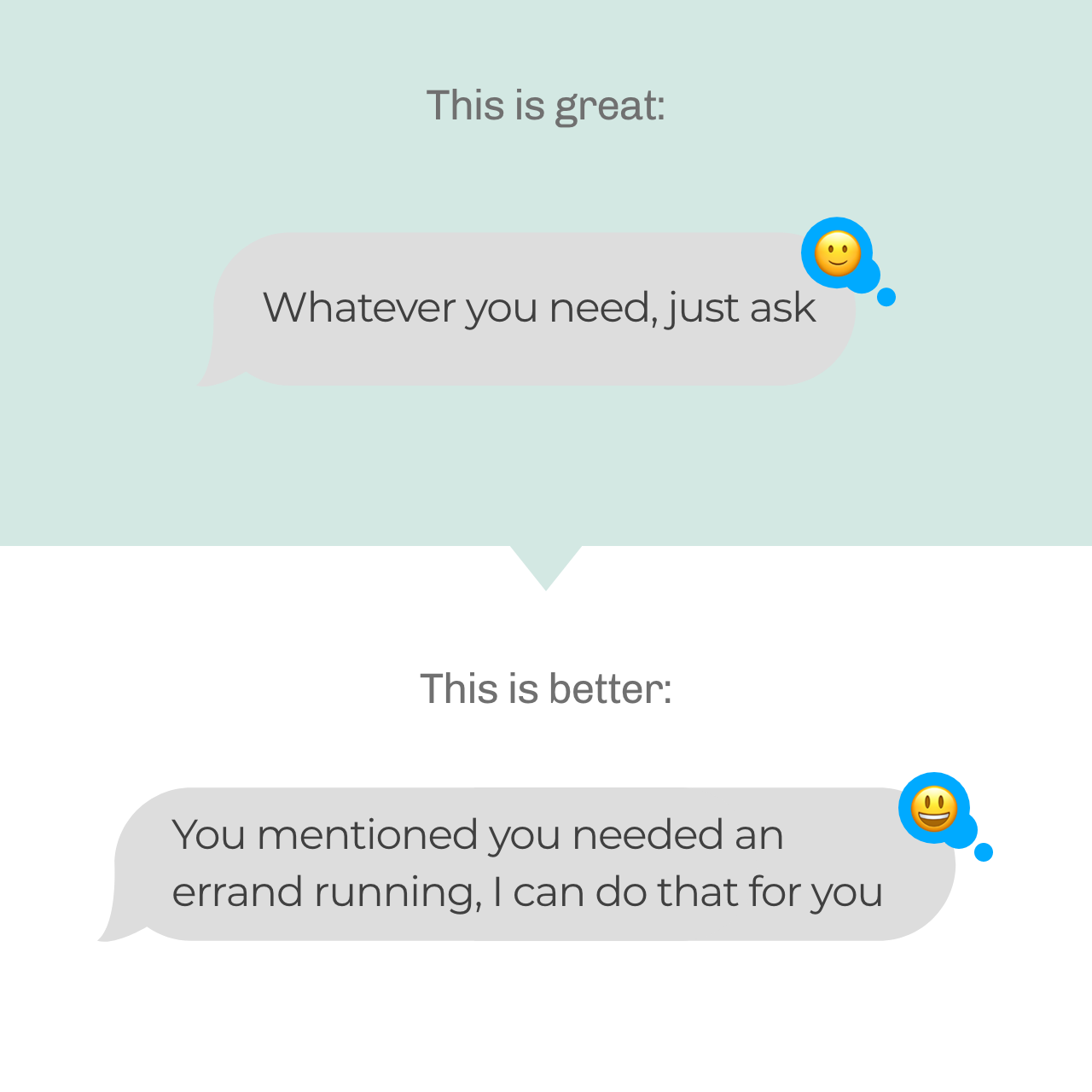
Key takeaways
- You don’t have to have the answers, you do have to listen: being present and not shying away from difficult or uneasy subjects will show that you’re reliable and willing to walk alongside them.
- Your role may not stay the same: be flexible and aware that your loved one may find support in different places, at different times. It may be that they need you to be emotionally available at the point of diagnosis and practically ready to help while undergoing treatment. Go with their flow.
- Communication is key: you will not always get it right, so accept that. The best emotional support comes from a calm and tolerant place.
Even with the best intentions, what people say and do vs what someone with cancer hears and interprets can vary greatly. We asked Perci Health Professionals, psychologist Dr Lucy Davidson and cancer coach Claire Taylor, to create a guide which anyone living with cancer could share with their family and friends. It’s full of advice about how to be the best companion they can be to you while you’re living with and beyond cancer.
How do I support someone with cancer?
Be empathetic and open
“Sometimes a person living with cancer will need you to just be there to listen and sit with the difficult feelings they are having. The ability to show empathy can be really valuable, rather than moving away from the difficulty they are expressing.
The simplest way to start a conversation is to just ask how they are; open, curious questions encourage someone to open up and share things with you, helping you to feel connected”. Dr Lucy Davidson, psychologist
Be present
“While distractions are sometimes helpful, pretending everything is ok and not wanting to say anything in case you upset someone can be the worst position to take. It may feel like you’re silencing or minimising the individual’s experience. It is really unlikely that asking how they are will cause undue upset. But take your cue from them about whether they want to talk about their cancer”. Dr Lucy Davidson, psychologist

Get the balance right
“Sometimes when caring for people, our response is to be over-protective. However this may not be helpful as they try to rebuild their confidence.
Communication is key here in finding out what matters to them and helping them define their priorities at this time. Recognise that your role may have to change over time. So negotiating what they expect from you will help avoid any imbalances in your relationship”. Claire Taylor, cancer coach
Validate their feelings
“A family member or friend with cancer will benefit from their experience being validated and you aiming to understand what they are experiencing and how they are feeling. Open communication and trying not to be judgemental are important during these conversations”. Dr Lucy Davidson, psychologist
Educate yourself
“It is really easy these days to better understand what a person living with cancer is going through. You can find podcasts, articles, books and tv programmes that will give you a greater insight into what it is like to live with cancer.
Look at some first-hand accounts. They could really help with any discussions you have about cancer, highlighting issues and experiences that haven’t occurred to you”. Dr Lucy Davidson, psychologist
Ask what they really need from you
“You can make a big difference in the day-to-day life of someone with cancer by being there for them emotionally and practically. As you spend time with your friend and learn more about how cancer is affecting their everyday life, you will find out what things you can offer to help.
Think about what their average day is like and what might make it a little better. This might involve offering to do small, practical things or finding ways to make your friend smile. Tailoring your help to what they need and enjoy most is the best way to be a friend”. Claire Taylor, cancer coach
Check in on them even from afar
If you’re not able to be there in person as regularly as you’d like or live far away, regular visits can be tricky. As an alternative you can find local support through befriending services, such as companiions.
companiions find local companionship for your loved one, pairing them with a friendly, helpful, inspiring person in their community with common interests. companiions Founder Lisa Robinson, says “a companion brings peace of mind that there’s someone there to check in regularly, help around the home and garden, go for walks, or simply share stories and make new memories. It’s amazing the difference that this kind of ‘little and often’ interaction can make”.

Don’t make assumptions
“A big assumption is that the end of treatment signifies the end, full stop. In fact, this can often be the hardest time for someone with cancer, as they adjust to life post treatment. It may not feel celebratory or a relief to them, so always find out how they feel about it rather than assume they want to pop open the champagne”. Dr Lucy Davidson, psychologist
Know their triggers
“People who have had a cancer diagnosis are rarely ‘over it’. Particularly challenging times can be the end of treatment, or when they have a scan or check-up due. There may also be other triggers, like something they see or hear on the news, someone else they know getting diagnosed or dying. These things can bring up a lot of feelings. Keep this in mind and try to check how they are doing around these times.
Supporting someone in integrating cancer into their lives, preparing for and talking about difficult times and not forgetting milestones, can be much more beneficial to them”. Dr Lucy Davidson, psychologist
Accept you won’t always get it right
“You won’t always get it right, and that’s ok. Just as with any relationship challenge, communication is key. Being tolerant and kind to each other is really important and will help with any bumps in the road”. Dr Lucy Davidson, psychologist
Use your intuition
“There may be times when your friend wants to talk about their cancer and their feelings and other times, when they want to forget all about it. Try to hear and understand how your friend feels. Let them know that you are open to talking whenever they feel like it. In summary, let them talk when they are ready, try to just listen, and do not feel you need to have answers”. Claire Taylor, cancer coach
Look after yourself
“Supporting someone with cancer is difficult in its own right. You are likely to also experience a spectrum of challenging, difficult feelings – fatigue, emotional stress and isolation for example – and these feelings may differ from the individual you are supporting who has cancer. Sometimes it is helpful to acknowledge and talk about these differences, sharing coping strategies and talking about each of you as individuals.
Make time for yourself and consider finding a support network of people in a similar situation to you”. Dr Lucy Davidson, psychologist
About companiions: companiions is a trusted befriending service that connects people who need a little help, support or companionship with vetted, rated and reliable companions, ready to make a positive difference. Through the companiions app, you can arrange accessible, affordable support locally for you or your loved one. companiions is available to download on Apple and Google Play stores, or you can find out more at www.companiions.com.
While we have ensured that every article is medically reviewed and approved, information presented here is not intended to be a substitute for professional medical advice, diagnosis, or treatment. If you have any questions or concerns, please talk to one of our healthcare professionals or your primary healthcare team.